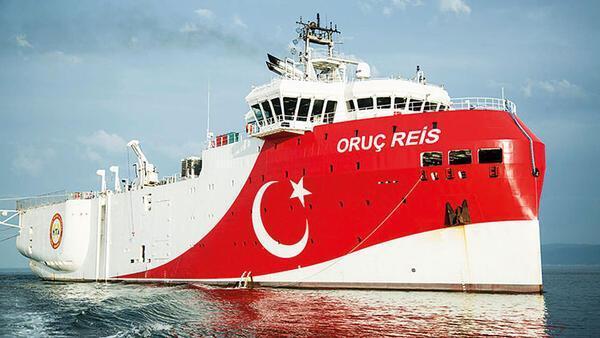
The area subject to a Navigational Telex (NAVTEX) that seismic vessel Oruç Reis will start research in the eastern Mediterranean as of July 21 falls under the continental shelf of Turkey and was notified to the United Nations, Foreign Ministry spokesperson Hami Aksoy has said.
The Greek claims for the region are “maximalist” and against the international law, Aksoy said in a written statement on July 22.
As part of the ongoing hydrocarbon exploration activities of Turkey in the eastern Mediterranean, it has been publicly announced with a NAVTEX broadcast by the competent authorities that Turkish seismic survey vessel Oruç Reis will launch a new seismic survey in the region, starting from July 21, said the statement.
The maritime area, in which Oruç Reis will conduct a survey, is located entirely within the Turkish continental shelf as declared to the United Nations and within the license blocks granted by the Turkish government to TPAO in 2012, said Aksoy.
The spokesperson recalled that the seismic research vessel Barbaros Hayrettin Paşa had also conducted a survey in previous years within a portion of the same area.
“This being the case, Greece raised objections to the current survey activity and claimed that the survey area is within its own continental shelf. Greece bases this claim on the presence of remote islands far from its own mainland, most notably Kastellorizo [Meis]. This maximalist continental shelf claim of Greece is contrary to international law, jurisprudence, and court decisions,” said the spokesperson.
The argument that an island of 10 square kilometers, located only 2 kilometers away from Anatolia and 580 kilometers from the Greek mainland, should generate a continental shelf area of 40,000 square kilometers is “neither rational nor in line with international law,” said the statement.
“We, therefore, reject these unjustified assertions of Greece,” Aksoy noted.
Turkey, while reiterating its calls to Greece for dialogue as repeated at every level on various occasions up until today, will also continue to defend its legitimate rights and interests stemming from international law, he added.
An advisory known as a Navtex was issued by Turkey’s navy on July 22 for seismic surveys in an area near Island Meis within the framework of the rights arising from the maritime restriction agreement signed with Libya.
The Greek Foreign Ministry said the advisory covered part of the Greek continental shelf.
“We call on Turkey to immediately cease these illegal actions which violate our sovereign rights and undermine peace and security in the area,” it said in a statement.